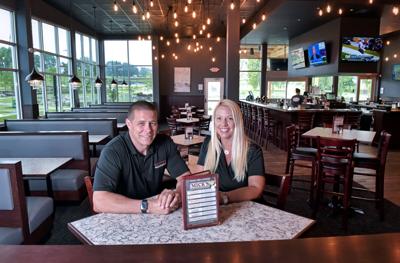Mick Owens has 120 reasons to like the new Paycheck Protection Program, a federal economic-stimulus initiative for small businesses that’s part of the COVID-19 relief legislation, the CARES Act.
That’s the number of laid-off employees the restaurateur brought back to work on April 6, while expanding his takeout operation from dinner-only to lunch and dinner.
Owens had temporarily cut staff after Gov. Tom Wolf ordered restaurants in mid-March to close their dining areas to fight the spread of COVID-19.
Owens, who owns three Mick’s All American Pub locations here and Maize Mexican Cantina, called the legislation a stroke of “genius” for putting the aid — loans that can be forgiven in full — directly in the hands of businesspeople.
From there, the impact will “bubble up,” he explained. Businesses like his now can afford to bring back idled workers, empowering them to pay their bills, benefiting supermarkets, landlords and lenders. Businesses like his also will to be able to pay their own rent, creating more positive ripples.
The loans will be forgiven if all employees are kept on the payroll for eight weeks, employee pay rates are not reduced, 75% of the loan amount is used for payroll and the remainder is used for rent, mortgage interest or utilities. No collateral or personal guarantees are required, according to the program's website.
“Labor is our biggest cost,” Owens said. “When you take labor out of the equation," the business can break even as a takeout-only operation, he said.
The Paycheck Protection Program is offered by the U.S. Small Business Administration through SBA-approved lenders, though the first round of loans -- totaling $349 billion -- has already been committed. Congress is discussing a second round, but Democrats and Republicans are split on the details.
Owens received his loan Wednesday from Centric Bank. He declined to disclose the amount.
Owens had “gone out on a limb” by bringing back his staff, reuniting them with the 15 employees he had retained, before he actually had the loan proceeds in hand. But Owens said he’d been assured by his banker that the loan proceeds would arrive.
Now he's facing the uncertainty over the second round of loans, which would cover his operation for another eight weeks. That would carry his restaurants deep into the summer, giving the economy (and his customer base) time to recover some of its strength.
“If there isn’t an extension, it will all have been for nothing,” Owens said.
Meanwhile, his restaurants are much less busy now than in their pre-pandemic days — revenue is down 80%. So Owens is keeping their employees occupied by having them do painting, training, cleaning and other tasks. They’re also working somewhat shorter weeks. Full timers, for instance, are doing just four shifts a week.


 TIM MEKEEL | Staff Writer
TIM MEKEEL | Staff Writer





